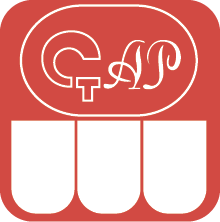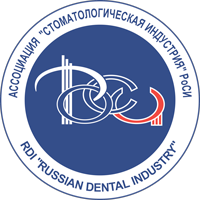Editorial Policies
Focus and Scope
Full-colour quarterly journal Clinical Dentistry (Russia) is established in 1997. Scientific and clinical materials concerning problems in the modern dentistry, articles concerning new promising branch — aesthetics in dentistry, practical information about new technologies, equipment, materials and accessories which provide successful stomatological treatment, diagnosis and prophylaxis.
Sections
- Paediatric dentistry (internal code A)
- Endodontics (B)
- Restoration (C)
- Therapy (D)
- Oral mucosa diseases (DD)
- Periodontology (E)
- Anesthesia (F)
- Orthodontics (G)
- Implantology (H)
- Surgery (K)
- Human anatomy (KK)
- Preventive measures (L)
- Gnathology (M)
- Microbiology (MM)
- Clinical case (N)
- Prosthodontics (P)
- Cariesology (U)
- Aesthetics (X)
- Organization (Q).
Open Access
“Clinical Dentistry (Russia)” is an open access journal. All articles are made freely available to readers upon publication.
Our open access policy is in accordance to the Budapest Open Access Initiative (BOAI) definition — means that articles have free availability on the public internet, permitting any users to read, download, copy, distribute, print, search, or link to the full texts of these articles, crawl them for indexing, pass them as data to software, or use them for any other lawful purpose, without financial, legal, or technical barriers other than those inseparable from gaining access to the internet itself.
For more information please read BOAI statement.
Peer-review
A double-blind peer review method is mandatory for processing of all manuscripts submitted to the editorial stuff. This implies that neither the reviewer is aware of the authorship of the manuscript, nor the author maintains any contact with the reviewer.
- Members of the editorial board and leading Russian and international experts in corresponding areas of life sciences, invited as independent readers, perform peer reviews. Editor-in-chief, deputy editor-in-chief or science editor choose readers for peer review. We aim to limit the review process to 2-4 weeks, though in some cases the schedule may be adjusted at the reviewer’s request.
- Reviewer has an option to abnegate the assessment should any conflict of interests arise that may affect perception or interpretation of the manuscript. Upon the scrutiny, the reviewer is expected to present the editorial board with one of the following recommendations:
- to accept the paper in its present state;
- to invited the author to revise their manuscript to address specific concerns before final decision is reached;
- that final decision be reached following further reviewing by another specialist;
- to reject the manuscript outright. - If the reviewer has recommended any refinements, the editorial staff would suggest the author either to implement the corrections, or to dispute them reasonably. Authors are kindly required to limit their revision to 2 months and resubmit the adapted manuscript within this period for final evaluation.
- We politely request that the editor be notified verbally or in writing should the author decide to refuse from publishing the manuscript. In case the author fails to do so within 3 months since receiving a copy of the initial review, the editorial board takes the manuscript off the register and notifies the author accordingly.
- If author and reviewers meet insoluble contradictions regarding revision of the manuscript, the editor-in-chief resolves the conflict by his own authority.
- The editorial board reaches final decision to reject a manuscript on the hearing according to reviewers’ recommendations, and duly notifies the authors of their decision via e-mail. The board does not accept previously rejected manuscripts for re-evaluation.
- Upon the decision to accept the manuscript for publishing, the editorial staff notifies the authors of the scheduled date of publication.
- Kindly note that positive review does not guarantee the acceptance, as final decision in all cases lies with the editorial board. By his authority, editor-in-chief rules final solution of every conflict.
- Original reviews of submitted manuscripts remain deposited for 5 years.
- The editorial staff send copies of reviews in the Ministry of Education and Science for admission to the editor of the corresponding request.
Disclosure and Conflict of Interest
Unpublished materials disclosed in a submitted manuscript must not be used in a reviewer’s own research without the express written consent of the author. Privileged information or ideas obtained through peer review must be kept confidential and not used for personal advantage.
Reviewers should not consider manuscripts in which they have conflicts of interest resulting from competitive, collaborative, or other relationships or connections with any of the authors, companies, or institutions connected to the papers.
Plagiarism detection
We are using Russian plagiarism detection software Antiplagiat to screen the submissions. If plagiarism is identified, the COPE guidelines on plagiarism will be followed.
Preprint and postprint Policy
As part of submission process, authors are required to confirm that the manuscript has not been previously published in any journal, nor has been submitted.
Only articles originally hosted by authors at personal or public sites that are not affiliated with other publishers are eligible for consideration..
Article processing charge
Publication fee is 600 USD. It includes editoral and double blind peer reviewing, manuscript editing, printing, web-publishing, DOI registration costs, etc.










